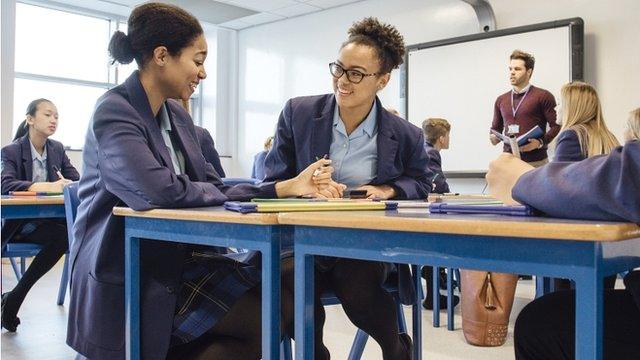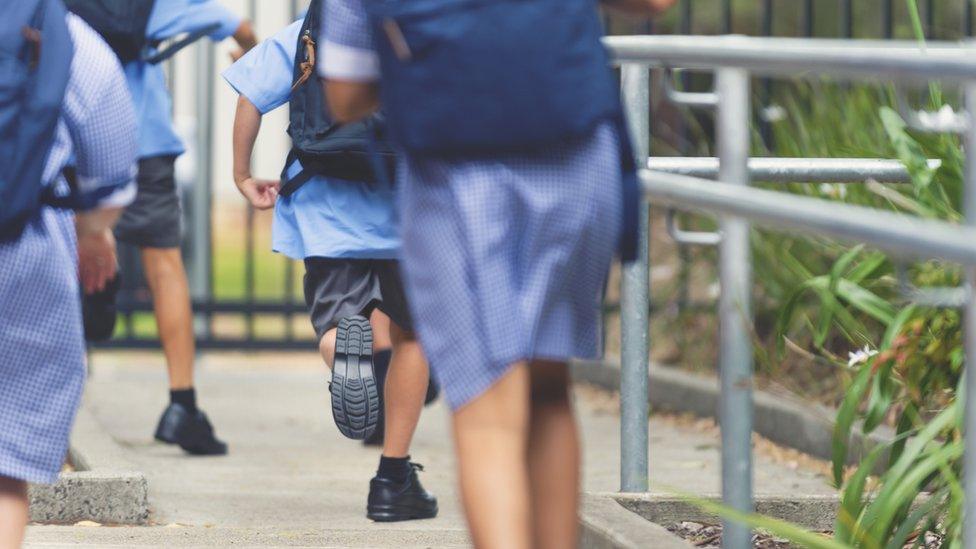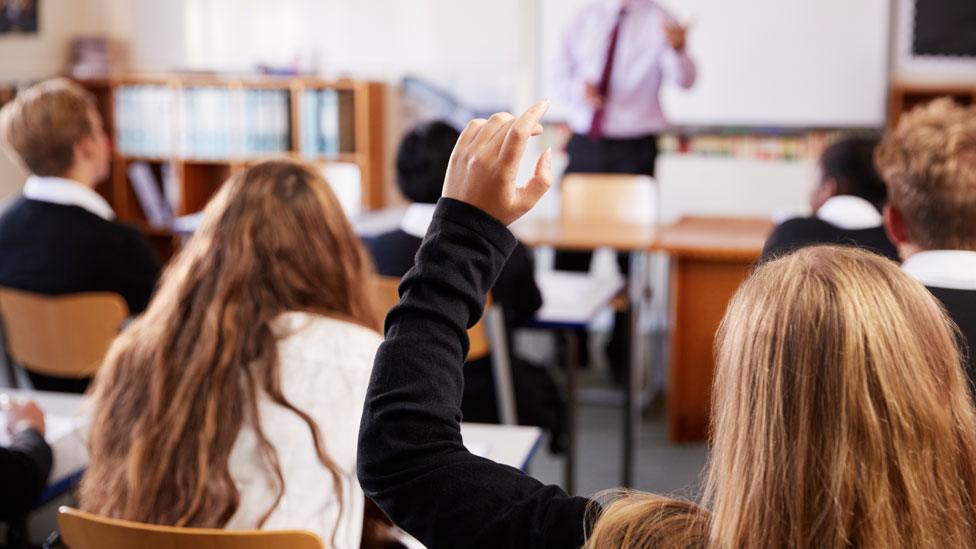Parents 'not involved' in new free schools
- Published
- comments

Parent groups have only been behind about one in five of the free schools that have been opened, say researchers.
The flagship policy, launched under the coalition government, was meant to bring innovation and more parental choice to schools in England.
But Sir Peter Lampl, chairman of the Sutton Trust, which carried out the free school study, said "very few are fulfilling that original purpose".
The Department for Education said free schools were raising standards.
The study, from the Sutton Trust social mobility charity and the National Foundation for Educational Research, says new free schools are now much more likely to be created by expanding academy trusts.
'Distinctive mission'
Free schools, the first of which opened in 2011, operate outside of local authority networks and were intended to be an innovative response to the demands of local parents.
The study examined more than 300 created until autumn 2017.
Initially, about 40% were opened with parent groups - but since 2015, that has fallen to below 20% at secondary level. In primary and all-through schools - those that teach youngsters of all ages - it is down to just 4%.
"In reality, the free school programme has been a vehicle by which new schools are opened by academy chains," says the study.
Since 2015, almost four in five of the new free schools have been set up by academy trusts.
They are also less likely to have a "distinctive mission" than other schools - and the report says the government needs to explain what it now sees as the purpose of free schools.
The analysis also found:
At secondary level, pupils at free schools perform slightly better
They have "largely been set up in areas with a need for more school places"
Free schools have a higher proportion of ethnic minority pupils compared with other school types in their local catchment areas
In secondary schools, the over-representation of ethnic minority pupils is driven by faith free schools
There has been a growth in non-Christian faith schools, such as Muslim, Jewish and Sikh
They have a slightly lower proportion of disadvantaged pupils, but poorer pupils in free schools do better than their peers in other schools
The report says that if free schools are now very likely to be part of academy chains, with few other distinctive features, there needs to be more clarity about how they are funded and supervised and to make sure they represent "value for public money".
There had been a presumption that all new schools would have to be free schools.
But this effective monopoly could change, as the Education Secretary Damian Hinds has announced that councils could open new faith schools, classified as "voluntary aided" rather than free.
The next wave of about 35 free schools is going to be directed towards the lowest-performing areas of England, particularly the North East.
Toby Young, founder of the West London Free School, said that even though this might be seen as a critical report, it showed that free schools were serving deprived and ethnic minority pupils.
"Turns out, these schools are not just benefiting middle-class children," he added.
"But most strikingly of all, the report found that children from deprived backgrounds at free schools do much better than their counterparts at other types of school. To be precise, disadvantaged pupils get higher grades in three out of eight GCSEs."
'Smoke and mirrors'
Carole Willis, chief executive of the National Foundation for Educational Research, said: "The government's free schools programme has not been very successful at bringing innovation to the education system and encouraging more parents and teachers to set up new schools".
"If the government is still committed to the programme's original purpose then it should review and clarify the mission of free schools."
Kevin Courtney, co-leader of the National Education Union, said the free school programme had so far cost £3.6bn, and the report showed the "notion of increased parental choice" had been "simply smoke and mirrors".
Mark Lehain, the interim director of the New Schools Network - which promotes the opening of free schools - said: "As a parent and founder of a free school, I know how much the policy has allowed local communities to get the schools they want.
"Free schools are still the best way for innovation to flourish and voices of the community to be heard."
The Department for Education said that free schools were part of its efforts to raise standards - and that 84% of those inspected were rated either good or outstanding.
"We are now inviting applications for more free schools and will prioritise those proposals that want to set up in areas with the lowest educational performance and greatest need for more good school places," said a DFE spokeswoman.
- Published29 May 2018

- Published11 May 2018
